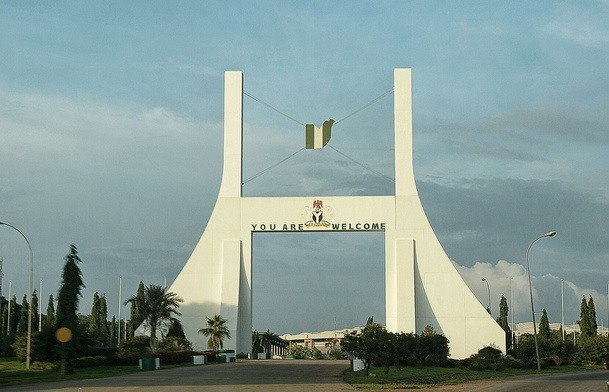“When a small toe is hurting, the whole body swoops down to attend to it”. African proverb
Abuja houses the President of the Federal Republic of Nigeria and all appointees who are supposed to help him run the country, except the fighting elements of the military, which are scattered all over the country but monitored in Abuja. It also houses the federal legislature, which exercises, among many other responsibilities, oversight over activities of the executive arm. It is where heads of the military, security agencies, police and para-military agencies live and supervise vital work of keeping citizens safe and secure. Hundreds of thousands of government employees who keep the engine of state running live and work in Abuja. Millions of citizens from all parts of the country, from scavengers to billionaires have made Abuja home. Many of the wealthy are virtual refugees from insecurity in towns and villages.
- Human trafficking: NAPTIP secures 10 convictions in Kano
- Police to extradite Maina from Niger Republic
Abuja runs Nigeria. To put it another way, it is responsible for keeping Nigerians safe and secure. That is the idea, but this idea suffers from such chronic anemia that you will have to read aloud from the constitution in certain circles. There are huge numbers of these circles, and they get wider by the day. Some are found in state capitals and are expressed in lamentations (some with genuine roots, others contrived) that Abuja’s influence in terms of support with resources and empathy is weak or non-existent. There are others carved out by guns, knives and fear where Abuja’s influence is at best sporadic, and at worst endemically non-existent. To be sure, some of these circles that grow from being starved of the presence or influence of Abuja are actually part of a city and have developed at a phenomenal rate, mostly driven by the persistent drive of the poor and the marginal to serve affluence. The city is surrounded by towns and settlements, which now habour the kidnapper and the bandit, making living virtually similar to those who live in Nasarawa, Niger and Kaduna States.
Part of the liabilities, which the capital of Abuja bears is the myth that it is a tiny island of peace and security whose powerful inhabitants know little (or care) about the rest of the country. The island of peace and security bit is untrue. What is true is that a tiny minority travels only by air because the bandit and the kidnapper are yet to acquire surface- to-air weapons. A few move in and out with huge, armed convoys that look like they are on their way to routing out an active gang of bandits. The rest are left to struggle for the limited privilege of using trains that remind everyone how unsafe they are or praying hard first and then driving to or out of Abuja on dangerous and damaged roads. Because the bandit and the kidnapper and the armed robber have developed sensitive noses for weaknesses of the state, they make fortunes from attacking vehicles traveling to and from Abuja. Relations who make it safe to destinations now go through mandatory routines of calling relations to announce the good news.
There is a part of Abuja that should answer to the accusation that it is too far removed from the population and does not care enough to reduce the distance between the state, which it runs, and the citizen who, with abundant justification, feels abandoned. This is the part occupied by a presidency with huge powers, which it does not, or cannot use. It is propped up by a legislature, which touts its paper responsibility of being representatives of the people in Abuja, makes all the right noises during budget defence and then adjusts to a life of being Abuja in all it represents in the minds of the people. There is another Abuja element that accounts for these two and is removed from having to account to the citizen, except by the ineffectiveness with which it exercises its mandate. These are people employed to keep Nigerians safe and secure wherever they are or pay the price for their failure. In times of great stress and worry over the security of lives and livelihood, these people come under intense scrutiny, or should. This is the reason the constitution vests so much power in the office and person of the President, Commander-In-Chief of the Armed Forces. It is his duty to win the war to secure the citizen; to keep an effective fighting force and efficient police; to account for their failures or claim credit for their successes. There is yet another element in Abuja. This is represented by those who speak for the leader of the country. In our current circumstances when the president is not particularly inclined to speaking to the citizen or being seen where it is important for the purposes of demonstrating the vital ingredient of empathy, they are particularly important.
The unspeakable horror of the slaughter of anywhere between 43 and 110 farmers in Borno State a few days ago took additional casualties. The huge chasm, which exists between the expectations of the citizen and the reality regarding President Buhari’s standard response to the setbacks in the theater of war in the north east widened with his trademark defence that he had done all there is to do for the military and his instructions that it should take the war to the enemy. Those who do not expect much to change from the style and disposition of the president will be spared great disappointment. Those who do will join the ranks of millions of Nigerians who are resigned to the fact that nothing will happen that will shift the president from his traditional posture and distance from national challenges.
To be fair, he did send a delegation to condole with the people and government of Borno State. His delegation got an earful, the loudest coming from a textbook loyalist to President Buhari, the Governor, Babagana Zulum. It would be unfair to attribute base motives to the requests of a hardworking and committed governor, but what he put forward as recommendations to improve the fight against the insurgency have always been available as potentials, which President Buhari could have activated a long while back. Except for the recommendation to re-engage South African mercenaries, which he must know represents a resounding negative verdict on our military, issues such as recruitment of locals into the military and paramilitary organisations, re-engineering collaboration with neighbouring countries, which Nigeria was substantially responsible for mismanaging into extinction, improvements in technical capacities of the military and police and relocating Nigerian refugees from camps in neighbouring countries are matters which are perfectly within the powers of the president to deal with. The president’s delegation did not hear the most vital demand, but it was there all around them. It was in the controlled voice of the Shehu; in the disciplined voice of an exasperated loyalist, Zulum, and in the silence and the moods of the thousands of people the delegation drove through. That voice said to Abuja: we are tired, we are angry and we feel abandoned. The question is whether the heavyweights in the delegation will deliver that message. More to the point is whether the president will read between the lines and understand how far his administration is from the people he leads.
One of the farmers who commented after spokesman Garba Shehu’s gaffe that farmers needed to seek clearance from the military before going to harvest what they had planted was reported to have said, “It is the responsibility of the government to provide security for us, but we are left helpless. We are surprised that someone living in Abuja will come out and discredit us…” This tragic incident has worsened President Buhari’s Abuja. It is now more removed and seemingly more uncaring.

 Join Daily Trust WhatsApp Community For Quick Access To News and Happenings Around You.
Join Daily Trust WhatsApp Community For Quick Access To News and Happenings Around You.


